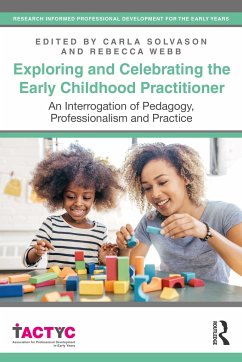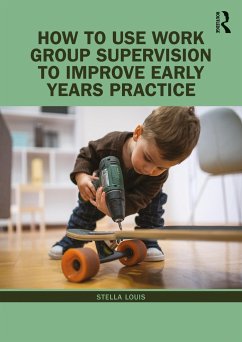
Loving Pedagogy Explained
Versandkostenfrei!
Versandfertig in 1-2 Wochen
36,99 €
inkl. MwSt.
Weitere Ausgaben:

PAYBACK Punkte
18 °P sammeln!
This book highlights the importance of developing a loving pedagogy and explains key terms used within this approach. Part of the Key Concepts in Early Childhood Series, this is essential reading for early years practitioners and students that want to know and understand the importance of adopting a loving pedagogy within early childhood.














